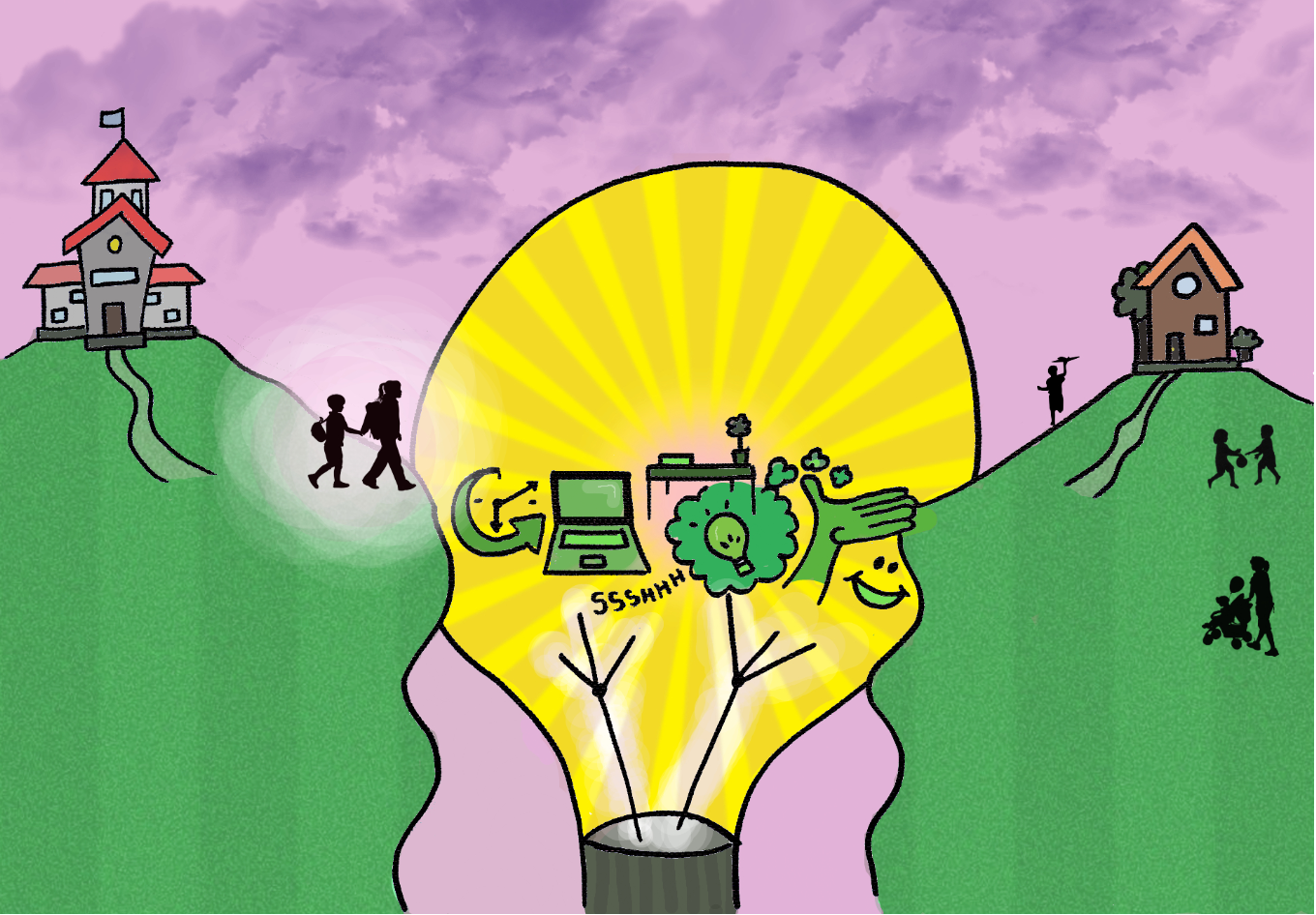Who is running this project?
The project is run by Dr Anna Tsakalaki at the University of Reading.
What is this project about?
This project aims to improve development of reading and writing skills of primary-school aged children from Ukraine, who are displaced from their homes and settled in schools in the UK. It will do so using a strategy-based intervention that seeks to give children and their parents tools to help children read and write more effectively in their home-language (L1), and English (L2). The study will measure change in the children’s literacy strategy-use and the families’ confidence and motivation to lead home-literacy activities using a specifically devised questionnaire and interviews before and after the intervention.
We will work with 20 families over a year to introduce literacy strategies that can be used at home to support literacy development in L1 and L2. Open access videos created for a past project (Little Literacy Lessons for Families) will be translated in Ukrainian and Russian to be used as starting points for the training. Changes in literacy strategy use will be explored with an adapted family-questionnaire. The questionnaire contains statements describing each strategy and asking the respondent to rate frequency with which the strategy is used in a week. Other parts of the questionnaire address confidence level in leading reading/writing activities at home. Semi-structured interviews with children and parents will be conducted throughout the project to capture more detailed views in the above areas of interest. Observations of families’ filmed home-literacy activities will be used to confirm/add to the results of the questionnaires/interviews. Data drawn from all research tools will help to draw conclusions about the transferability of this model of work to other refugee groups and schools seeking to support their pupils’ parents (refugee and non-refugee) to lead targeted home-literacy activities.
This is the first study to use a strategy-based intervention to enhance refugee children’s transferable literacy skills across the L1 and L2, and also increase families’ confidence in supporting their children’s literacy development at home. Literacy strategy-use (i.e., consciously used actions a learner uses to read/write (Griffiths, 2007) operates at a higher level because it enhances individuals’ ability to make decisions about how they develop their reading and writing skills. As such, it gives the learner better control over their reading and writing skills, and thus, enhances independence and confidence in their learning. Few studies, however, investigated literacy strategy use with primary age children (Ardasheva et al., 2017), and fewer still across L1 and L2. Furthermore, this is the first study to document the effects of a family intervention targeted on strategy-use with refugees in that age group. It will provide important insights into whether specific training of families to support their children in strategy-use is the route to faster and more secure progress in populations that require rapid and drastic support in their literacy skills in both their L1 and L2, such as young refugee children.
The project is funded by the British Academy/Leverhulme Small Research Grant scheme.
Find out more
This study is based on the findings of the “Home learning and wellbeing of children during Covid 19” and the “Little Literacy Lessons for Families” project. These were two internally funded studies run during 2019-2021 to explore learning experiences of families during school closures and support families and professionals with open access learning resources. Developments on the project will appear on the Little Literacy Lessons for Families website.


